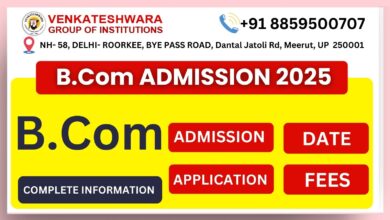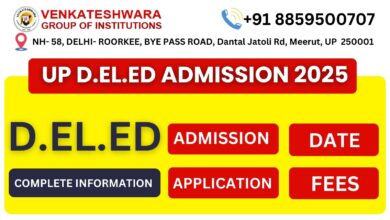BCA Qualification, which technologies should a BCA student master to be successful in the IT world

The BCA qualification requires that one must pass their 12th grade from a recognized board with at least 45% marks (40% for SC/ST students).
Many students are intrigued about whether they are eligible for BCA if they do not have Mathematics in class 12th. While many universities mandate math in Class 12th, others allow students from all streams to pursue a BCA course.
The Bachelor of Computer Applications (BCA) is the ideal platform for non-mathematics students to enter the fascinating world of computer applications.
Many non-mathematics students feel left out because to pursue a BTech in CS, one should have PCM in class 12th. While the BCA course allows non-mathematics students to enroll in the BCA course to realize their tech career dreams.
The Indian IT sector is growing and changing. Although there will be challenges, the overall outlook is positive because of digital transformation, new technology, and increasing global demand for IT services.
The Indian tech industry is forecasted to double its revenue to $500 billion by 2030, as reported by the India Brand Equity Foundation (IBEF). IT exports are expected to hit $210 billion in the 2024-25 financial year, according to Acara Solutions India.
These figures highlight a bright future for the IT sector provided we focus on developing innovative products like UPI rather than providing basic services.
The world endorses innovative products that can solve a real-life challenge, like developing systems that can detect and neutralize all drone types.
Eligibility for BCA after 12th
As mentioned earlier, students should have passed 10+2 from a recognized board securing a minimum of 45% (40% for SC/ST). This makes students of all streams eligible to pursue the BCA course.
In today’s ever-changing tech world, what matters are skills and not just degrees? Companies hire candidates who have the requisite skills to accomplish the task.
Therefore, gaining futuristic skills like AI, ML, cybersecurity, data analytics, etc. is crucial to landing a high-paying job. The best paymasters are product companies, which hire computer graduates to build innovative products for the masses.
Therefore, BCA students should grasp CS fundamentals to be adept in programming, systems design, database management and cybersecurity. One who is passionate about making a high-flying computer science career will find many avenues to enrich their career.
There are enough YouTube videos that show how a BCA graduate, with sheer hard work and resilience, is getting pay packages of 1 Cr and above. What matters is persistent efforts to master the technologies that are in high demand in the job market.
Which technologies should a BCA student master to be successful in the IT world?
As we all are aware, AI is rapidly transforming the tech world by taking over repetitive, mundane tasks. But to be successful in the tech world, computer graduates should be proficient in the following areas:
Programming Languages: They should be proficient in Python, C++, Java, and JavaScript in order to solve real-life problems. They should develop projects to showcase their understanding of the language and problem-solving abilities.
Web Development Skills: To develop user-friendly websites and applications, students should be adept in HTML, CSS, JavaScript and frameworks for both front end and back end development.
Cloud Computing: Learn to manage remote servers, data centers, and scalable applications as the industry shifts to cloud-based platforms.
Software Testing: Learn the skills to test an application robustly before it is handed over to the customer. This ensures that the product developed meets the quality parameters.
Database Management: Learn to design, manage and secure databases using SQL and No SQL which helps data handling in almost all applications.
Cybersecurity: It’s an emerging field because with almost all services online we require cybersecurity experts to prevent financial, impersonation, and data breach frauds.
Mobile app development: It’s another growing area because most services are now available through mobile apps, allowing users to access them through smartphones.
Networking: Learn to design, manage and troubleshoot networks because IT graduates will be tasked with managing IT infrastructure.
Data Modelling and User Interface Design: Learn data modelling and how to design user interfaces because these skills will make you job ready.
Soft-Skills: for experiencing rapid career growth, work on your communication, problem solving, teamwork and critical thinking skills because they are vital in the corporate world.
To be successful, just having a BCA qualification is not enough, but one should master the above skills so that they realize their career dreams.
BCA Qualification and BCA Course Fees
BCA fees vary based on the type of college. Public colleges receive government grants, making their fees lower, while self-financed colleges rely on student fees to cover expenses, resulting in higher costs. For a detailed overview of the BCA fees, please click on the following link.
How a BCA graduate can fare better than a BTech CSE after gaining BCA qualification
1 Focused Practical Skills: Just having a BCA qualification is not enough. But with continuous learning and skill enhancement in critical areas of AI, ML, Cloud-computing a BCA graduate can outshine a BTech CSE.
Because BTech CSE curriculum is still more inclined towards theory and the hardware part of CSE.
2. Shorter Duration and Early Workforce Entry: BCA is of 3 years compared to a BTech, which completes in 4 years. This allows the former to enter the workforce early and, through continuous upskilling, can outclass their BTech counterparts.
3. Cost-Effective Course: The BCA course fees is much less than that of Btech, allowing students to reduce costs and seek better ROI. With upskilling in the latest technologies, a BCA graduate can grab better job offers and get a good return on investment.
4. Flexible Careers and Higher Education: focusing especially on computer applications, the BCA course provides many options to become a software developer, system analyst, web developer, database administrator or IT support specialist.
BCA graduates can enhance their tech knowledge by pursuing an MCA, which is a PG qualification in computer applications.
With certifications like cloud computing, cybersecurity and data science, BCA graduates can outclass a BTech CSE graduate.
5. Emphasis on Skills and Certifications: While a BTech CSE may appear more appealing, a BCA can outperform the former by gaining skills in cloud computing, AI, ML, cybersecurity and the like.
In the IT sector, employers value skills and not just degrees. Through proper upskilling, anyone, even without a formal CSE degree, can fetch salaries of 1 Cr and more.
The programming field requires strong resilience so that the person keeps on trying until they achieve the desired result. Successful programmers are those who persist until they find the right solution.
Be Professionally Visible
6. Networking and Industry Exposure: BCA graduates who take part in industry events like hackathons, coding contests, and inter-college events get recognized and have a high chance to meet industry stalwarts.
These industry heroes can offer them internships leading to expected job offers. Therefore, success relies more on continuous skill improvement, experience, and adaptability than on the type of degree.
Summary Comparison of a BCA Vs BTECH CSE
| Aspect | BCA Graduate Advantage | BTech CSE Graduate Advantage |
| Duration | 3 years (faster to enter workforce) | 4 years (longer curriculum) |
| Focus | Practical application & software development | Theoretical concepts, algorithms, hardware |
| Cost | Lower tuition fees | Higher tuition fees |
| Career Readiness | Quicker job entry with practical skills | Advanced, specialized roles available |
| Education Pathways | Easier transition to MCA or certifications | Direct path to M.Tech or research/specialized roles |
| Salary Potential | Can grow with experience and certifications | Generally higher starting salary initially |
| Skill Development | Practical, Application-Oriented | Deep technical & engineering knowledge |
BCA Subjects
The following subjects form the core syllabus of the BCA course:
| BCA Subjects Semester I | |
| Hardware Lab (CIA Only) | Statistics I For BCA |
| Introduction To Programming Using C | C Programming Lab |
| Digital Computer Fundamentals | PC Software Lab |
| BCA Subjects Semester II | |
| Case Tools Lab (CIA Only) | Basic Discrete Mathematics |
| Data Structures | Data Structures Lab |
| Operating Systems | Visual Programming Lab |
| BCA Subjects Semester III | |||
| Interpersonal Communication | Introductory Algebra | ||
| Software Engineering | Database Management Systems | ||
| Financial Accounting | Object-Oriented Programming Using C++ | ||
| BCA Subjects Semester IV | |||
| Computer Networks | Programming In Java | ||
| DBMS Project Lab | Web Technology Lab | ||
| Java Programming Lab | – | ||
| BCA Subjects Semester V | |||
| Unix Programming | OOAD Using UML | ||
| Graphics And Animation | Python Programming | ||
| User Interface Design | Business Intelligence | ||
| BCA Subjects Semester VI | |||
| Design And Analysis Of Algorithms | Client-Server Computing | ||
| Cloud Computing | Multimedia Applications | ||
| Computer Architecture | Introduction To Soft Computing | ||
BCA Eligibility after 12th without Math’s
As mentioned earlier in the post, students should have passed 10+2 from a recognized board securing a minimum of 45% (40% for SC/ST). This makes students of all streams eligible to pursue the BCA course.
Many institutions mandate that students should have mathematics in class 12th to be eligible for the BCA course, while many allow candidates of all streams to pursue BCA without the precondition of having mathematics in class 12th.
So what are you waiting for? Just click the link to realize your dream of an illustrious tech career.






